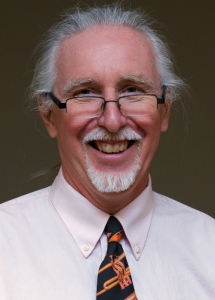 By Bob Hulteen
By Bob Hulteen
Let’s be honest: Christian community on its best days is challenging. And, the authors of the scriptures seem to be aware that it is virtually impossible when economic inequity is a lived experience within communities.
The Hebrew people knew that accumulation of wealth by fewer and fewer people would make them even more vulnerable to the ruling powers of the day. Theologically, they acknowledged this. Just like people need a day of rest every seven days and the land needs an opportunity for resurgence after seven years, they said that the entire community needed a fiscal reset after seven cycles of seven years. They called for a Year of Jubilee – a return of accumulated wealth to those who now had less – and were committed to release of the captives and good news for the poor.
Sojourners Community, the congregation of my 20s, took this all very literally.* As the early church in Acts, we sought to live out of a common purse.
“So, a system seemingly designed to bring equality did not have the impact of bringing equality of experience.”
In our zeal to live as closely as possible to the early followers of Jesus, those of us in the Sojourners Community shared one bank account. Each of the 50 members of the community (35 adults and 15 children) shared their paycheck with the community and received a $50 stipend back for personal expenditures. No matter what your salary, like those early Christians, we wanted an economy of equality.
We built an infrastructure to help us live out this equality. We shared seven row houses in a neighborhood that had been neglected for decades. We co-owned eight cars, with sign out sheets when one needed transportation. Each living situation received a bulk payment for food to be used collectively.
LIVING OUT BIBLICAL values it turns out however, can become increasingly challenging (and exhausting).
What was equality really fair? I confess that I spent most of my monthly allotment on beer and books. My housemate Janice, with early onset arthritis, spent most of her stipend on ibuprofen and other forms of pain relief.
Community members Dolly and Scott were able to travel to see their family — located in Maryland and Virginia respectively — nearly every week without any significant cost. Holidays were times to see nieces and nephews, grandmas and uncles. On the other hand, Jim and I, with families on the West Coast and Midwest, struggled to get home every other year, pinching together any leftover cash from that spent on books (er, and beer).
“For the first time the majority of Minnesota’s six ELCA bishops will be women (when Bishop-Elect Amy Odgren is installed later this fall).”
So, a system seemingly designed to bring equality did not have the impact of bringing equality of experience.
Maybe I’m thinking of this because this year is the 50th anniversary of Sojourners the magazine. (The communal living experience ended in 1990.) And 50 is the magic number of Jubilee.
But, it’s not magic. Justice and equality come with hard work. Our dedicated siblings in the faith who sought the professional priesthood for women worked long and hard to see it come into being. The first woman was ordained in a predecessor body of the ELCA 50 years ago. This is a year of jubilee for a more equitable table.
By 2009 when the table was expanded further to siblings who were gay, lesbian, bisexual, transgender, queer, still not one bishop in Minnesota was yet a woman. Today however, 11 years later, for the first time the majority of the state’s six ELCA bishops will be women (when Bishop-Elect Amy Odgren is installed later this fall). In lilting steps at times, we make strides forward.
The table isn’t done expanding. Jubilee always challenges to reset – both our imaginations and our wealth. Christian community is still on its best days challenging (and exhausting). But, thankfully, at its best it is also renewing and liberating.
*I also belonged to St. Peter Lutheran Church in Washington, D.C., a small but mighty congregation offering many community engagement opportunities, like home delivery of groceries to shut-ins and a yearround shelter for women experiencing homelessness. (And, coincidently, the congregation where Pastor Kelly Chatman interned.)
